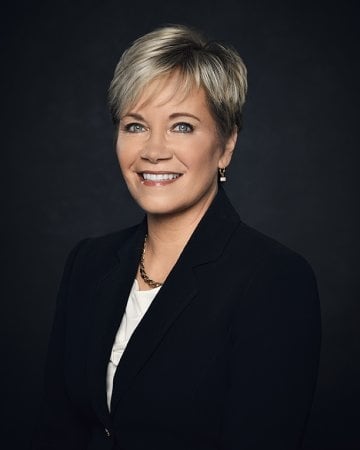You have /5 articles left.
Sign up for a free account or log in.

Laura M. Casamento
Utica University
Utica University’s president on Jan. 18 recommended ending a dozen degree offerings, moves the institution says were informed by a report it won’t release.
The private New York college’s public comment period on the changes ends Thursday.
A member of the provost-appointed Academic Program Review Taskforce, which created the report, said the members expected the report was going to become public. The member spoke with Inside Higher Ed on the condition of anonymity.
Utica president Laura M. Casamento’s recommendations weren’t a “mirror image” of what’s in the document, the member said.
“There were several things that were said there that I was kind of shocked about,” the member said of her recommendations. “Many more majors were suggested to be sunset in the president’s presentation than we had recommended.”
“I’m not going to comment on that,” Casamento said Friday. She also said that “never, to my knowledge, was the actual report supposed to be public.”
“However, that said, the Board [of Trustees] is going to look at all the public comments and everything everyone says and any new data,” she said, and it will create another report in response.
She has provided some numbers to justify the proposal to stop offering degrees including the bachelor’s in chemistry, a bachelor of science and a bachelor of arts in geoscience, the bachelor’s in Spanish, and the bachelor’s in philosophy.
“We have 58 credentials here, so you have to really look at that,” Casamento said, universitywide.
She said 4.4 percent of undergraduates are in the majors she recommended ending, and all the currently enrolled students would be allowed to finish them. As of fall 2021, the university had about 2,990 undergraduates and 1,260 graduate students.
“I think we have to move away from this mentality [that] when we try to better match what we offer with what students and employers are demanding, that that’s a bad thing,” she said.
“I think so often institutions continue to kick the can down the road on this,” she said.
The American Association of University Professors’ Utica arm has filed a grievance against the university over the situation. Kirstin F. Walker, the AAUP’s grievance officer, alleged in a letter to the provost that the university had failed to follow the union contract’s procedures by circumventing the Faculty Senate Curriculum Committee.
“Specifically, by determining that the Academic Review Committee recommendations concerning the curriculum do not fall within the purview of the Curriculum Committee,” Walker wrote.
AAUP-Utica president Leonore Fleming said the union represents full-time faculty there, librarians and some other employees.
“We have experienced such a letdown,” Fleming said. “We have trusted them, we’ve tried to be patient, and they kept promising us more information and, ultimately, never provided any of it.”
“Everyone was kind of blindsided by these program eliminations, and also the lack of explanation and documentation with the program eliminations, and everyone is still processing everything that happened from that and how it felt to be told that information in that way,” she said.
“We recognize, as faculty, we only make recommendations to the president and the provost,” she said. “But, typically, proposals for curricular changes come from experts or from people in the appropriate academic areas. And it’s not just the Curriculum Committee but the entire process before that. You have to give rationales for certain changes.”
Casamento said, “We thought this was the best process to put it through, and whether we are criticized for that or not, we stand by that decision.”
On Jan. 25, the Faculty Senate publicly censured the Board of Trustees over the situation.
Bernard Hyman, the senate’s presiding officer, said there are 182 voting members, including all of Utica’s full-time faculty and librarians. He said 47 people were absent, and the vote of those present was 111 to 15 with nine people not voting.
Casamento said minors and courses related to the degrees that would be sunsetted will still be offered and “infused” more into the general education curriculum, while the university can move toward offering associate degrees and other workforce-related offerings.
She said the move isn’t financially motivated, even though it will have financial benefits in the future.
“We’re still offering all the disciplines,” she said.








